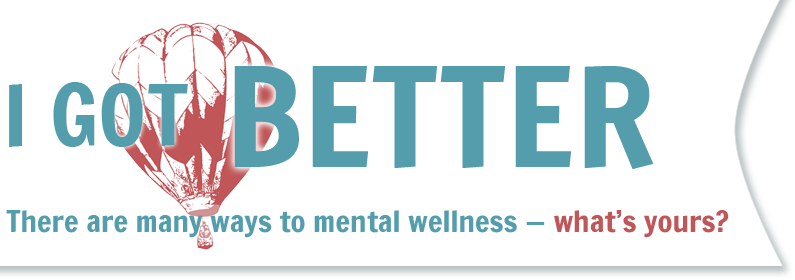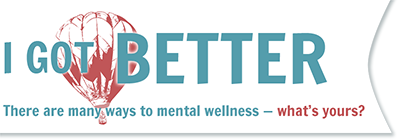More Power Than You Know
Sarah Bobo
During your mental health care, have you often felt hopeless about your chance of getting better?
Yes. I thought for years that I would be unable to engage in meaningful work, that I would never be able to have children – at least in part because I was such a burden no one would ever want to marry me. I believed that I would always be a burden to my family because I would never really be able to take care of myself. I engaged in abusive relationships because I felt so lucky that anyone would spend time with me.
Has a mental health provider ever told you that you could reach a personal goal despite your psychiatric diagnosis (for example, education, career, independent housing, relationship, children, etc.)?
Yes, especially at Brookhaven Retreat, where I spent 4 months in residential care the message was always, “you can do this.” Before Brookhaven, I think people believed in me, but I got the messages that I just needed the right medications and to pull myself out of it.
Has a mental health provider ever told you that you could not reach a personal goal because of your psychiatric diagnosis (for example, education, career, independent housing, relationship, children, etc.)?
Yes. It was more, “Maybe these things aren’t what you need/want.” Especially with children, the message I got was that it would be better for me to marry someone who already had children so that I could have part of the experience without having to put myself through the stress of pregnancy and caring for an infant, neither of which I could handle.
If you overcame hopelessness that you could get better from a mental health or emotional problem, was there a turning point for you?
Intensive immersion in a recovery-oriented program was what I needed. I was surrounded by other people who were getting better and by people who believed in me, encouraged me, and taught me tools and perspectives that helped me to heal and eventually to believe in myself. I needed patience, because it is a process, and I needed support so I could focus fairly exclusively on my mental health for a while. I needed goals (such as going to something recovery-oriented every day) that I could work towards, but not undue pressure in achieving them before I was ready. I needed a recovery environment.
Tell us what recovery means to you. How would you define recovery from mental health or emotional problems in your own words?
Recovery is being able to dream, to strive for those dreams, and to experience hope. I have symptoms sometimes still, but I can recognize them for what they are and roll with them. I know I have the power to interact with symptoms differently, to prevent myself getting lost in them. I know I am strong and can not only weather the storms but find the wisdom and joy in all that I experience.
If you could send a brief message to someone receiving mental health care today who is feeling hopeless about getting better, what would you say?
The process of healing is not easy, but it is possible, and it is worth it. The only way to the other side is through. You are a unique and beautiful human being, created for a purpose. You are stronger than you know – it takes strength to survive even one day experiencing intense symptoms, and you are still here! You have more power than you know, not over what happens to you but over what you make of your experiences. You can choose to work, and you will find joy.

